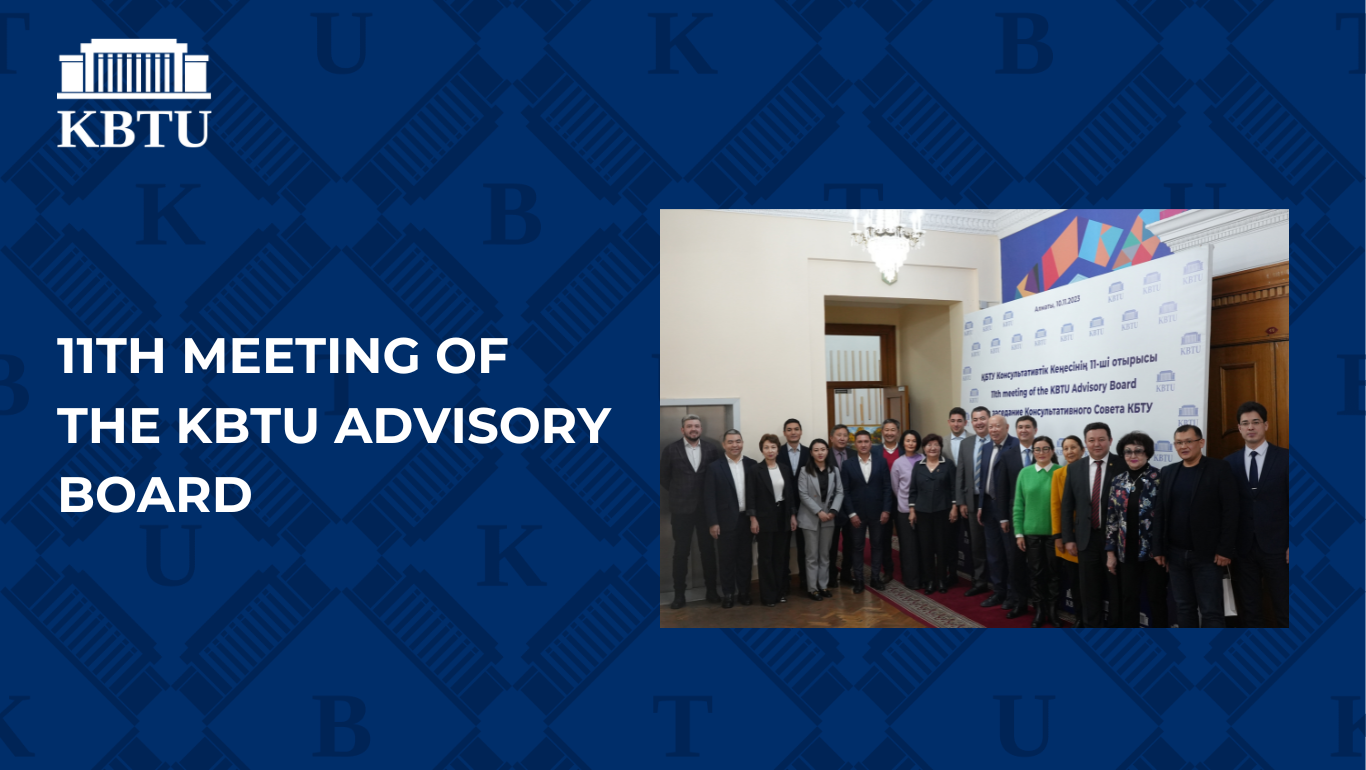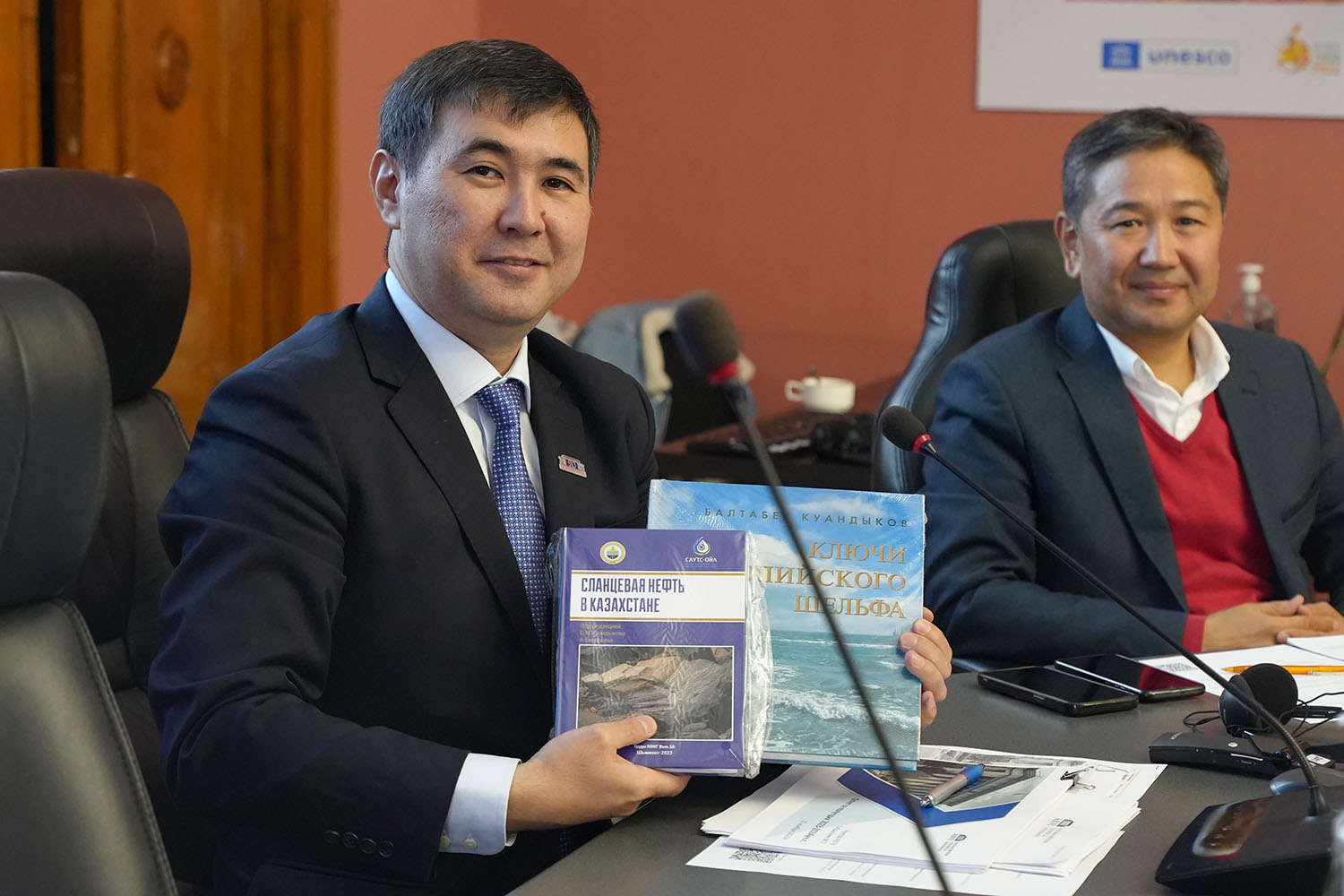
Kuandyk Baltabek, Doctor of Geological and Mineralogical Sciences, Honored Worker of Industry of the Republic of Kazakhstan:
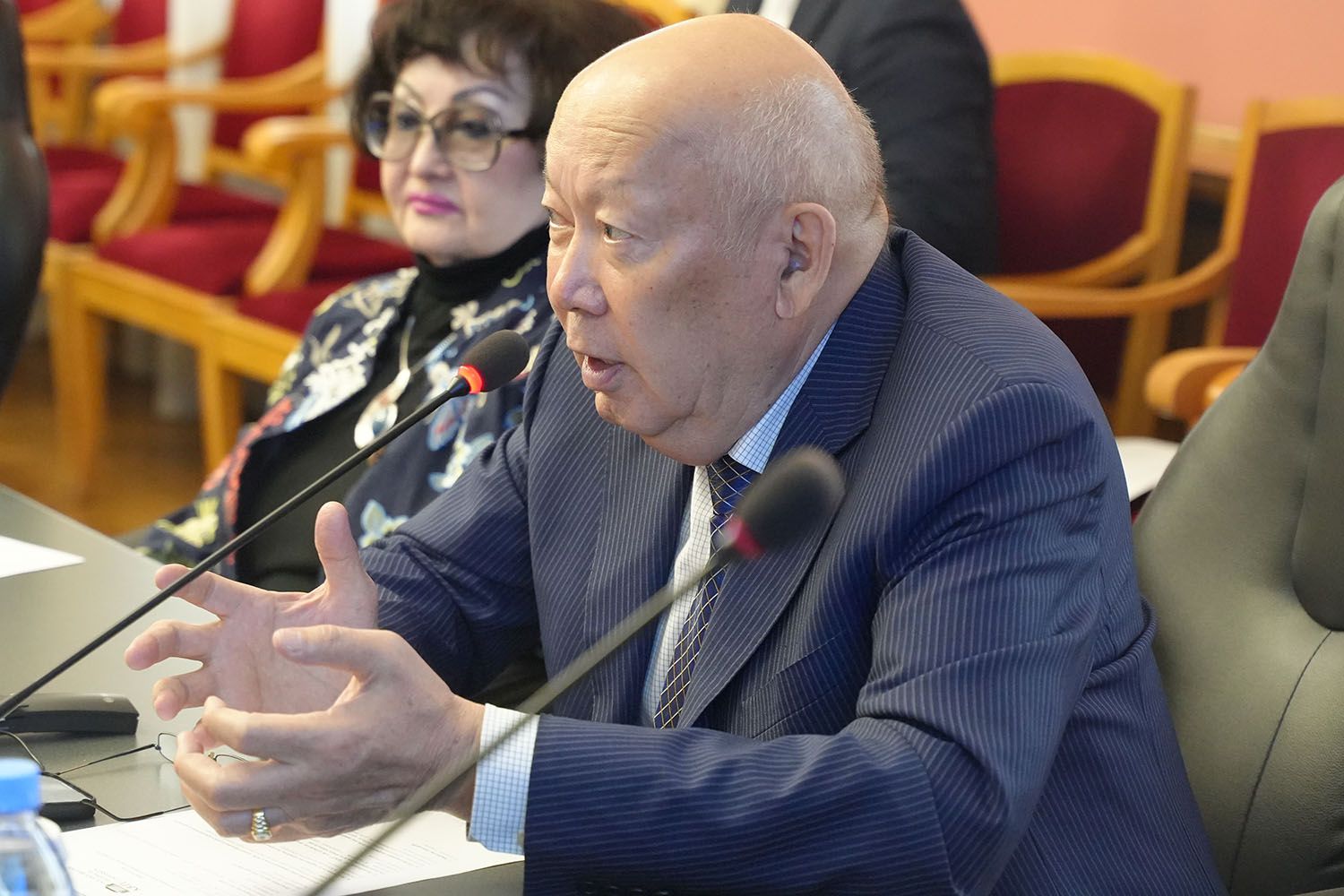
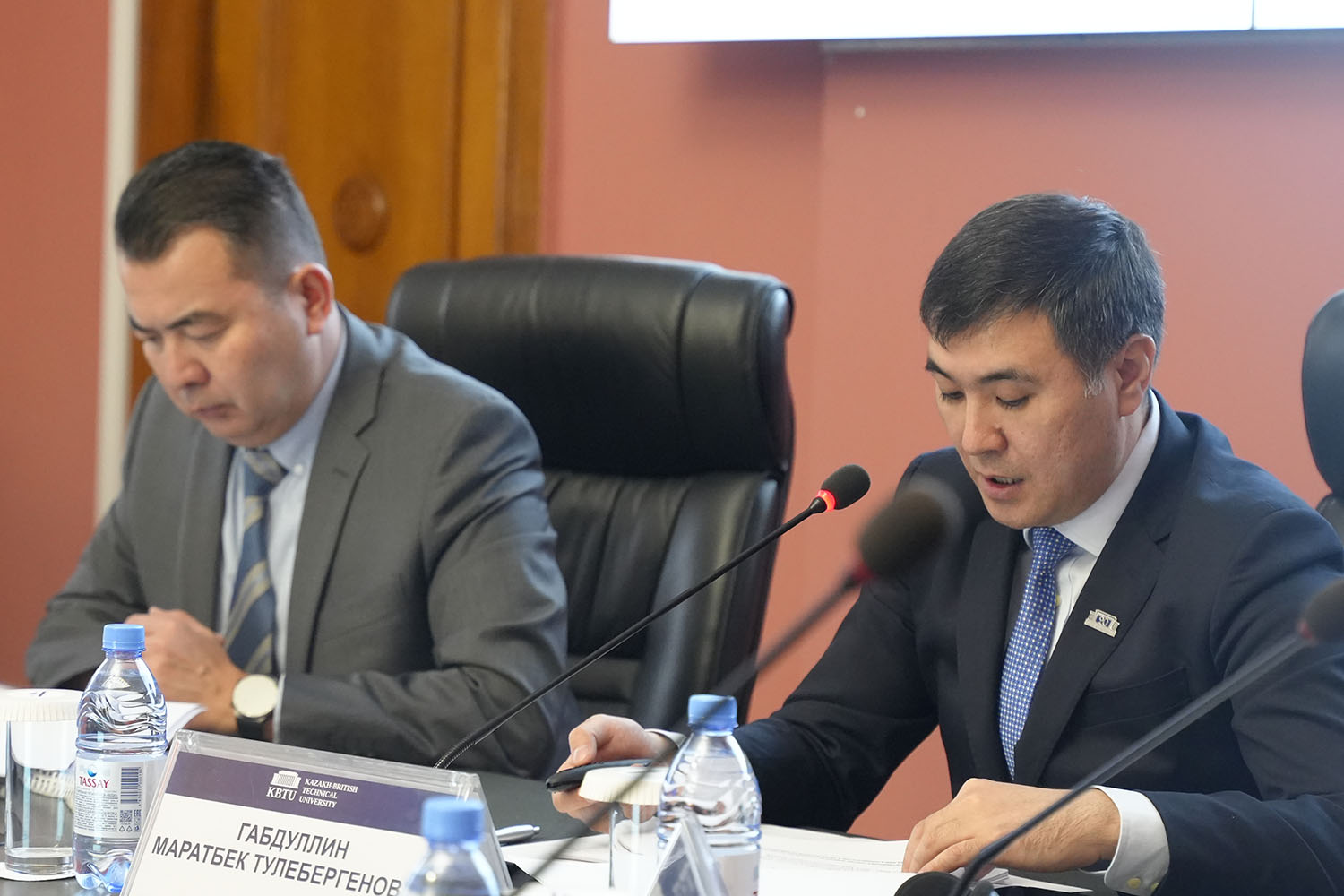
“We have achieved 20% of the total budget through research and development in all areas. We participate in grant funding, targeted funding programs, and R&D. We publish 127 articles per year in international scientific journals. In April next year we are planning to open our own testing site at the SEZ PIT Alatau. We are already conducting tests and want to create a digital field, the VR laboratory of which will be located at KBTU and we will be able to monitor and study various production methods.” KBTU continues to conduct research work together with Samruk-Kazyna, Honeywell, World Bank, UNDP, Kazatomprom, KAZENERGY, JSC NC KazMunayGas and others.
Dean of the School of Energy and Petroleum Industry Abdulakhat Ismailov said on the creation of a university hub at the WPC, new educational programs and projects: “The idea of creating a hub was voiced during the VII Youth Forum of the World Petroleum Council, held at KBTU in 2022. On September 18, 2023, at the 24th WPC Forum in Calgary (Canada), our university presented the hub, its goals, and mission. This day is considered the hub’s birthdate. Firstly, the Hub will play the role of a bridge between young specialists and production (adaptation in production). In this regard, seminars and guest lectures are held between WPC universities. The next thing is new educational programs. We recently uploaded data for a master's program on the energy transition in the petroleum industry and are working on launching a Doctor of Engineering program. According to these programs, we will train highly qualified personnel together with Robert Gordon University. There will be two academic degrees: “PHD in the petroleum industry” - this is in Kazakhstan - and “Doctor of Engineering” from Robert Gordon University.”
Azamat Muratov spoke about the local “silicon valley” - AlmaValley :
“We started work in February of this year...One of the projects that the developers are working on is Safety Academy. As part of the project, we conducted an analysis among five or six universities, interviewing students and professors. As it turns out, no one knows about safety precautions. Based on this, we began to prepare courses, brochures, and video courses. With the help of artificial intelligence, they introduced a Kazakhstani analogue of brochures and began conducting courses on ST. Also this year, we launched ICT courses, which were completed by 1,200 people. In this course, the content and avatars are generated entirely by artificial intelligence,” Azamat emphasized that almost every AlmaValley project uses and applies artificial intelligence.
The developments of JSC Bekturov Institute of Chemical Sciences for subjects of the real sector of the economy in the direction of resource-saving and green technologies were presented by Khaidar Tasibekov, General Director of JSC Bekturov Institute of Chemical Sciences:
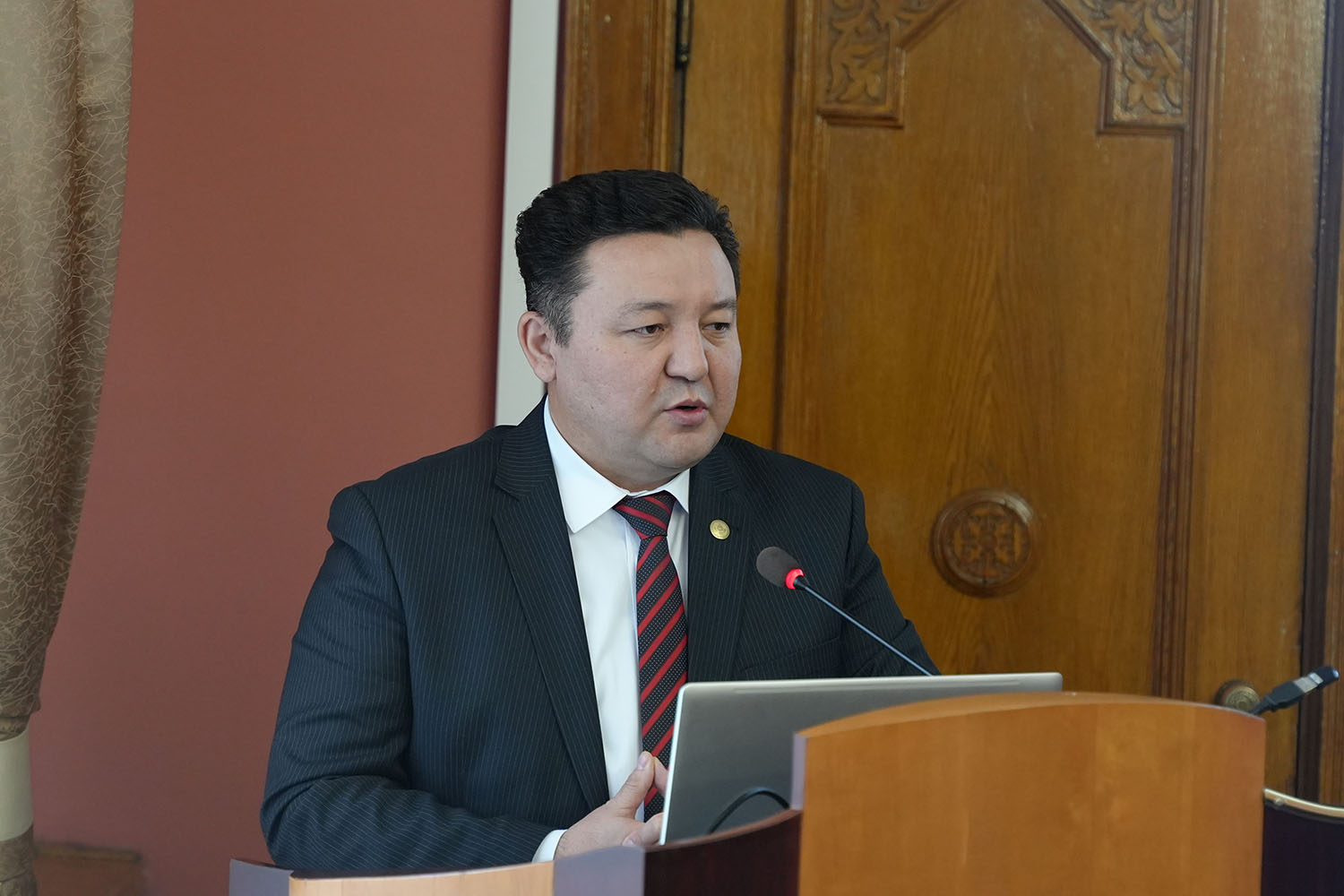
What domestic developments for achieving sustainable environmental development are there at the JSC Sokolsky Institute of Fuel, Catalysis and Electrochemistry" A. Abilmagzhanov, First Deputy General Director, explained the meeting to the participants. The main projects are related to the following areas: CO2 utilization, gas neutralization and corrosion control.
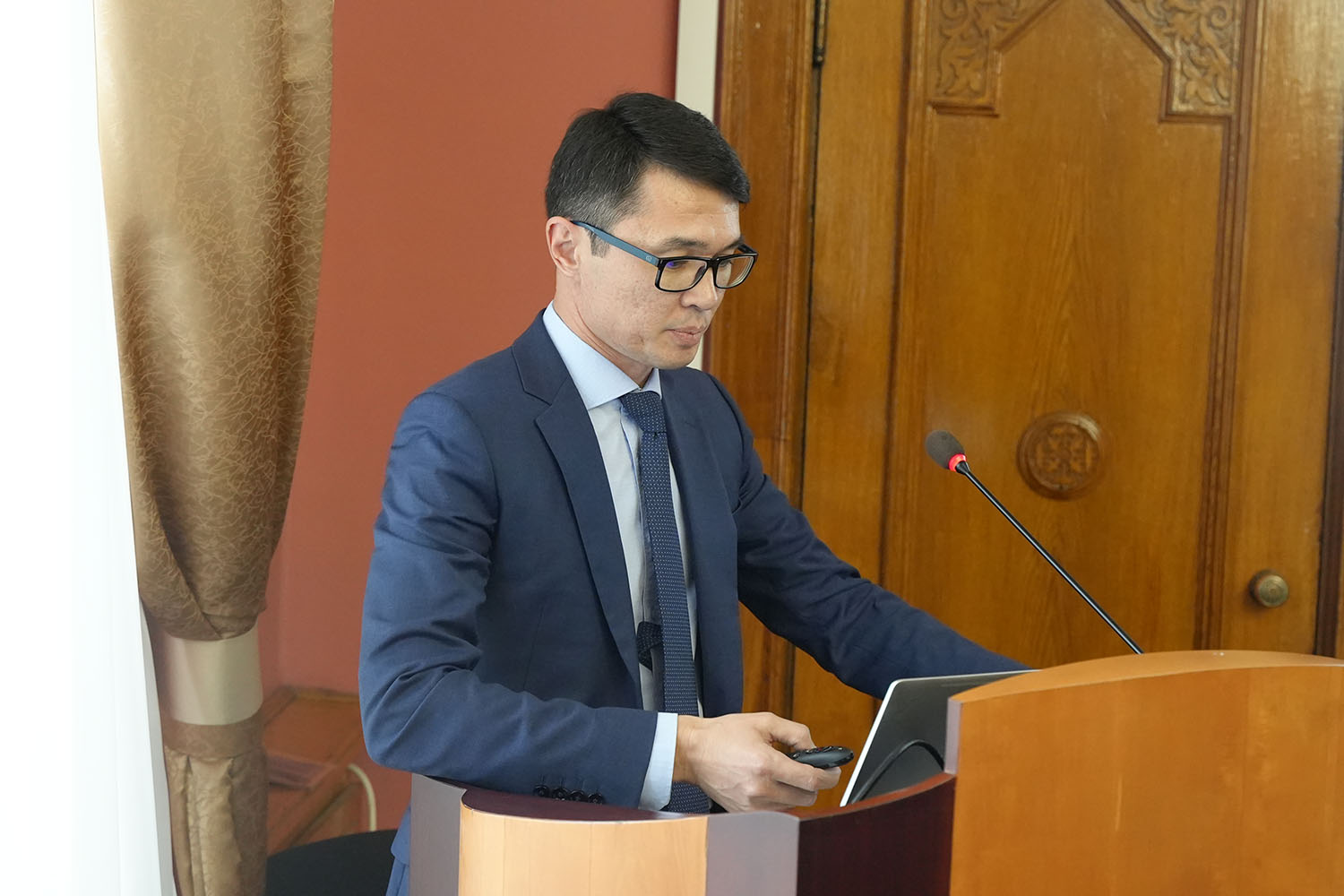
At the end of the discussions, the Chairman of the Board of KBTU JSC, Maratbek Gabdullin , emphasized that “KBTU gathers everyone on this site to show everything that the university has, and all the ideas that are proposed at the Advisory Board are implemented in the activities of the university.” By decision of the 11th meeting of the Advisory Board, it was decided: to prepare and send to the companies and founders an Advisory Board consultant from KBTU on possible issues of cooperation in the field of technological R&D research.


